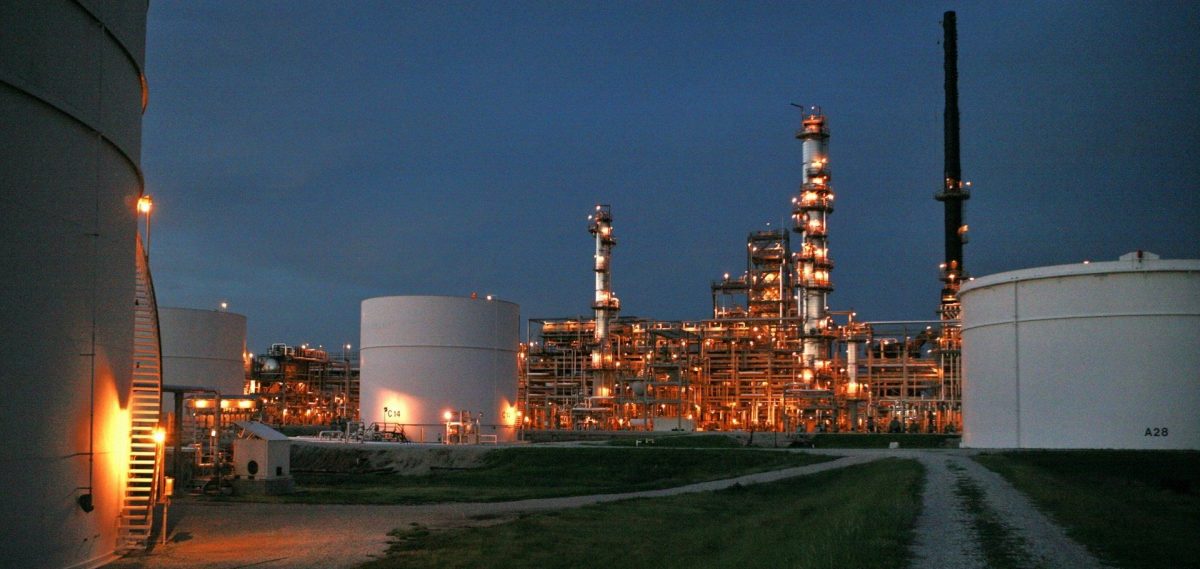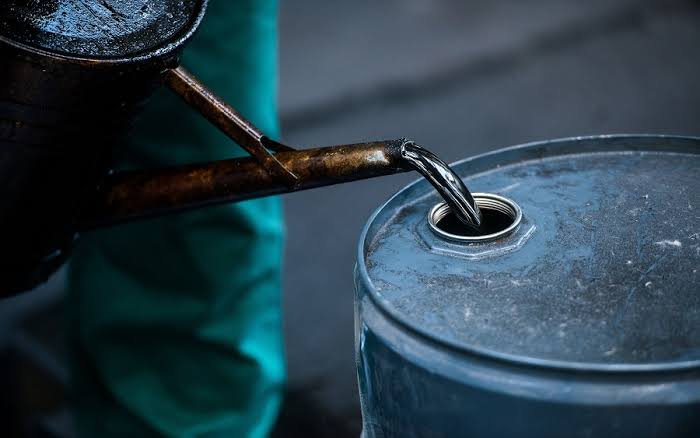AGO [/vc_column_text][/vc_column][/vc_row]PORT HARCOURT DEPOTDEPOT PRICELIQUID BULK₦ 167.0SHORELINKSTOCKGAPNIPCO₦ 168.0SAHARA/BULK STRATEGICDOZZYAVIDOREVA₦ 167.0 CALABAR DEPOTDEPOT PRICENORTHWESTAMMASCOMAINLANDSAMON PET₦ 168.0FYNEFIELDALKANESYSG (YOUNG SHALL GROW)₦ 166.0BLOKKS FRADOHYDEAZMAN/NIPCO₦ 168.0UGO HANNAH WARRI DEPOTDEPOT PRICERAINOIL OGHARA₦ 166.0NEPAL OIL₦ 168.0PRUDENT OGHARA₦ 169.0MATRIX₦ 165.0CYBERNETICSTAURUS₦ 166.0OTHNIEL BROOKSOPTIMA₦168.0PINNACLEFRADRO₦ 166.0AYM SHAFA LAGOS DEPOTDEPOT PRICEAFRICA TERMINALS₦ 164.0IBACHEM₦ 164.0IBETO₦ 164.0MRS₦ 164.0LEIGHTEN PETINDEX₦ 164.0ETERNA₦ 164.0FOLAWIYO₦ 164.0OBAT₦ 162.0CHIPET₦ 164.5RAHAMANIYYA₦ 163.0A Z₦ 165.0NIPCO₦ 168.0AITEO₦...
24-08-2020
AGO [/vc_column_text][/vc_column][/vc_row]PORT HARCOURT DEPOTDEPOT PRICELIQUID BULK₦ 167.0SHORELINKSTOCKGAPNIPCO₦ 168.0SAHARA/BULK STRATEGICDOZZYAVIDOREVA₦ 167.0 CALABAR DEPOTDEPOT PRICENORTHWESTAMMASCOMAINLANDSAMON PET₦ 168.0FYNEFIELDALKANESYSG (YOUNG SHALL GROW)₦ 166.0BLOKKS FRADOHYDEAZMAN/NIPCO₦ 168.0UGO HANNAH WARRI DEPOTDEPOT PRICERAINOIL OGHARA₦ 166.0NEPAL OIL₦ 168.0PRUDENT OGHARA₦ 169.0MATRIX₦ 165.0CYBERNETICSTAURUS₦ 166.0OTHNIEL BROOKSOPTIMA₦168.0PINNACLEFRADRO₦ 166.0AYM SHAFA LAGOS DEPOTDEPOT PRICEAFRICA TERMINALS₦ 166.0IBACHEM₦ 169.0IBETO₦ 169.0MRS₦ 162.0LEIGHTEN PETINDEX₦ 164.0ETERNA₦ 164.0FOLAWIYO₦ 164.0OBAT₦ 162.0CHIPET₦ 163.5RAHAMANIYYA₦ 162.5A Z₦ 164.0NIPCO₦ 168.0AITEO₦...
21-08-2020
AGO PORT HARCOURT DEPOTDEPOT PRICELIQUID BULK₦ 167.0SHORELINKSTOCKGAPNIPCO₦ 168.0SAHARA/BULK STRATEGICDOZZYAVIDOREVA₦ 167.0 CALABAR DEPOTDEPOT PRICENORTHWESTAMMASCOMAINLANDSAMON PET₦ 168.0FYNEFIELDALKANESYSG (YOUNG SHALL GROW)₦ 168.0BLOKKS FRADOHYDEAZMAN/NIPCO₦ 168.5UGO HANNAH WARRI DEPOTDEPOT PRICERAINOIL OGHARA₦ 170.0NEPAL OIL₦ 168.0PRUDENT OGHARA₦ 169.0MATRIX₦ 165.0CYBERNETICSTAURUS₦ 165.5OTHNIEL BROOKSOPTIMA₦168.0PINNACLEFRADRO₦ 166.0AYM SHAFA LAGOS DEPOTDEPOT PRICEAFRICA TERMINALS₦ 166.0IBACHEM₦ 169.0IBETO₦ 169.0MRSAA RANO₦ 164.5INDEX₦ 164.0ETERNA₦ 164.0FOLAWIYO₦ 164.0OBATCHIPETRAHAMANIYYAA Z₦ 166.0NIPCO₦ 168.0AITEO₦ 166.5AIPEC₦ 165.0SAHARA₦ 165.0EMADEB ENERGYA.A...
20-08-2020
AGO PORT HARCOURT DEPOTDEPOT PRICELIQUID BULK₦ 167.0SHORELINKSTOCKGAPNIPCO₦ 168.0SAHARA/BULK STRATEGICDOZZYAVIDOREVA₦ 167.0 CALABAR DEPOTDEPOT PRICENORTHWESTAMMASCOMAINLANDSAMON PET₦ 168.0FYNEFIELDALKANESYSG (YOUNG SHALL GROW)₦ 168.0BLOKKS FRADOHYDEAZMAN/NIPCO₦ 168.5UGO HANNAH WARRI DEPOTDEPOT PRICERAINOIL OGHARA₦ 170.0NEPAL OIL₦ 168.0PRUDENT OGHARA₦ 169.0MATRIX₦ 165.0CYBERNETICSTAURUSOTHNIEL BROOKSOPTIMA₦168.0PINNACLEFRADRO₦ 166.5AYM SHAFA LAGOS DEPOTDEPOT PRICEAFRICA TERMINALS₦ 164.0IBACHEM₦ 164.0IBETO₦ 164.0MRS₦ 162.0LEIGHTEN PETINDEX₦ 164.0ETERNA₦ 164.0FOLAWIYO₦ 164.0OBAT₦ 162.0CHIPET₦ 163.5RAHAMANIYYA₦ 162.5A Z₦ 165.0NIPCO₦ 168.0AITEO₦ 163.0AIPEC₦ 163.5SAHARA₦...
19-08-2020
AGO PORT HARCOURT DEPOTDEPOT PRICELIQUID BULK₦ 167.0SHORELINKSTOCKGAPNIPCO₦ 168.0SAHARA/BULK STRATEGICDOZZYAVIDOR CALABAR DEPOTDEPOT PRICENORTHWESTAMMASCOMAINLANDSAMON PET₦ 168.0FYNEFIELDALKANESYSG (YOUNG SHALL GROW)₦ 168.0BLOKKS FRADOHYDEAZMAN/NIPCO₦ 168.5UGO HANNAH WARRI DEPOTDEPOT PRICERAINOIL OGHARA₦ 170.0NEPAL OIL₦ 168.0PRUDENT OGHARA₦ 169.0MATRIX₦ 165.0CYBERNETICSTAURUSOTHNIEL BROOKSOPTIMA₦168.0PINNACLEFRADRO₦ 166.5AYM SHAFA LAGOS DEPOTDEPOT PRICEAFRICA TERMINALS₦ 166.0IBACHEM₦ 169.0IBETO₦ 169.0MRS₦ 164.0LEIGHTEN PETINDEXETERNAFOLAWIYOOBAT₦ 162.0CHIPETRAHAMANIYYA₦ 162.5A Z₦ 163.0NIPCO₦ 168.0AITEO₦ 163.0AIPEC₦ 164.0SAHARA₦ 172.0EMADEB ENERGYA.A RANO₦ 163.0WOSBAB₦ 164.0MAO₦...
18-08-2020
AGO PORT HARCOURT DEPOTDEPOT PRICELIQUID BULK₦ 167.0SHORELINKSTOCKGAPNIPCO₦ 168.0SAHARA/BULK STRATEGICDOZZYAVIDOR CALABAR DEPOTDEPOT PRICENORTHWESTAMMASCOMAINLANDSAMON PET₦ 168.0FYNEFIELDALKANESYSG (YOUNG SHALL GROW)₦ 168.0BLOKKS FRADOHYDEAZMAN/NIPCO₦ 168.5UGO HANNAH WARRI DEPOTDEPOT PRICERAINOIL OGHARA₦ 170.0NEPAL OIL₦ 166.0PRUDENT OGHARA₦ 169.0MATRIX₦ 165.0CYBERNETICSTAURUSOTHNIEL BROOKSOPTIMA₦168.0PINNACLEFRADRO₦ 166.5AYM SHAFA LAGOS DEPOTDEPOT PRICEAFRICA TERMINALS₦ 166.0IBACHEM₦ 169.0IBETO₦ 169.0MRS₦ 164.0LEIGHTEN PETINDEXETERNAFOLAWIYOOBAT₦ 162.0CHIPETRAHAMANIYYA₦ 162.5A Z₦ 165.0NIPCO₦ 168.0AITEO₦ 163.0AIPEC₦ 164.0SAHARA₦ 172.0EMADEB ENERGYA.A RANO₦ 163.0WOSBAB₦ 164.0MAO₦...
17-08-2020
AGO PORT HARCOURT DEPOTDEPOT PRICELIQUID BULK₦ 165.0SHORELINKSTOCKGAPNIPCO₦ 167.0SAHARA/BULK STRATEGICDOZZYAVIDOR CALABAR DEPOTDEPOT PRICENORTHWESTAMMASCOMAINLANDSAMON PET₦ 168.0FYNEFIELDALKANESYSG (YOUNG SHALL GROW)₦ 168.0BLOKKS FRADOHYDEAZMAN/NIPCO₦ 168.5UGO HANNAH WARRI DEPOTDEPOT PRICERAINOIL OGHARA₦ 170.0NEPAL OIL₦ 166.0PRUDENT OGHARA₦ 168.5MATRIX₦ 165.0CYBERNETICSTAURUSOTHNIEL BROOKSOPTIMA₦168.0PINNACLEFRADRO₦ 166.5AYM SHAFA LAGOS DEPOTDEPOT PRICEAFRICA TERMINALS₦ 166.0IBACHEM₦ 171.0IBETO₦ 171.0MRS₦ 164.0LEIGHTEN PETINDEXETERNAFOLAWIYOOBAT₦ 162.0CHIPETRAHAMANIYYA₦ 162.0A Z₦ 165.0NIPCO₦ 168.0AITEO₦ 163.0AIPEC₦ 164.0SAHARA₦ 172.0EMADEB ENERGYA.A RANO₦ 163.0WOSBAB₦ 164.0MAO₦...
14-08-2020
AGO PORT HARCOURT DEPOTDEPOT PRICELIQUID BULK₦ 165.0SHORELINKSTOCKGAPNIPCO₦ 167.0SAHARA/BULK STRATEGICDOZZYAVIDOR CALABAR DEPOTDEPOT PRICENORTHWESTAMMASCOMAINLANDSAMON PET₦ 168.0FYNEFIELDALKANESYSG (YOUNG SHALL GROW)₦ 168.0BLOKKS FRADOHYDEAZMAN/NIPCO₦ 168.5UGO HANNAH WARRI DEPOTDEPOT PRICERAINOIL OGHARA₦ 170.0NEPAL OIL₦ 166.0PRUDENT OGHARA₦ 168.5MATRIXCYBERNETICSTAURUSOTHNIEL BROOKSOPTIMA₦168.0PINNACLEFRADRO₦ 166.5AYM SHAFA₦165.0 LAGOS DEPOTDEPOT PRICEAFRICA TERMINALS₦ 166.0IBACHEM₦ 167.0IBETO₦ 167.0MRS₦ 164.0LEIGHTEN PETINDEXETERNAFOLAWIYOOBAT₦ 162.0CHIPETRAHAMANIYYA₦ 162.0A Z₦ 163.0NIPCO₦ 164.0AITEO₦ 163.0AIPEC₦ 170.0SAHARA₦ 172.0EMADEB ENERGYA.A RANO₦ 163.0WOSBAB₦ 164.0MAO₦ 162.0GULF...
PENGASSAN members in petroleum ministry begin warning strike
Members of the Petroleum and Natural Gas Senior Staff Association of Nigeria in the Federal Ministry of Petroleum Resources and some of its agencies on Wednesday commenced a three-day warning strike.
It was gathered that the senior workers downed tools at the Abuja headquarters of the FMPR in protest against the non-payment of their salaries for the past three months.
Our correspondent also learnt that the strike was embarked upon by PENGASSAN to kick against the Federal Government’s inclusion of its members in the Integrated Payroll and Personnel Information system.
The association’s National Public Relations Officer, who doubles as the Rivers State Secretary of the Trade Union Congress, Fortune Obi, confirmed the industrial action when contacted.
The striking senior staff staged a protest in Abuja, displaying various placards with inscriptions such as “IPPIS is a pandemic than COVID-19, the President should act fast,” and “IPPIS office, respect your agreement and come for negotiations” among others.
Officials of the FMPR said they were aware of the protest and the three-day warning strike but declined to comment further on what the ministry was doing to address the situation.
Source: Punch
13-08-2020
AGO PORT HARCOURT DEPOTDEPOT PRICELIQUID BULK₦ 165.0SHORELINKSTOCKGAP₦ 160.0NIPCO₦ 168.0SAHARA/BULK STRATEGICDOZZYAVIDOR₦ 163.0 CALABAR DEPOTDEPOT PRICENORTHWESTAMMASCOMAINLANDSAMON PET₦ 163.0FYNEFIELD₦ 162.0ALKANESYSG (YOUNG SHALL GROW)₦ 162.0BLOKKS FRADOHYDEAZMAN/NIPCO₦ 166.0UGO HANNAH WARRI DEPOTDEPOT PRICERAINOIL OGHARANEPAL OIL₦ 166.0PRUDENT OGHARA₦ 168.5MATRIXCYBERNETICSTAURUSOTHNIEL BROOKSOPTIMA₦168.0PINNACLEFRADROAYM SHAFA₦165.0 LAGOS DEPOTDEPOT PRICEAFRICA TERMINALS₦ 166.0IBACHEM₦ 168.0IBETO₦ 168.0MRS₦ 164.0LEIGHTEN PETINDEXETERNAFOLAWIYOOBAT₦ 162.0CHIPETRAHAMANIYYA₦ 162.0A Z₦ 162.0NIPCO₦ 164.0AITEO₦ 165.5AIPEC₦ 170.0SAHARA₦ 168.0EMADEB ENERGYA.A RANO₦ 165.0WOSBAB₦ 164.0MAO₦...

